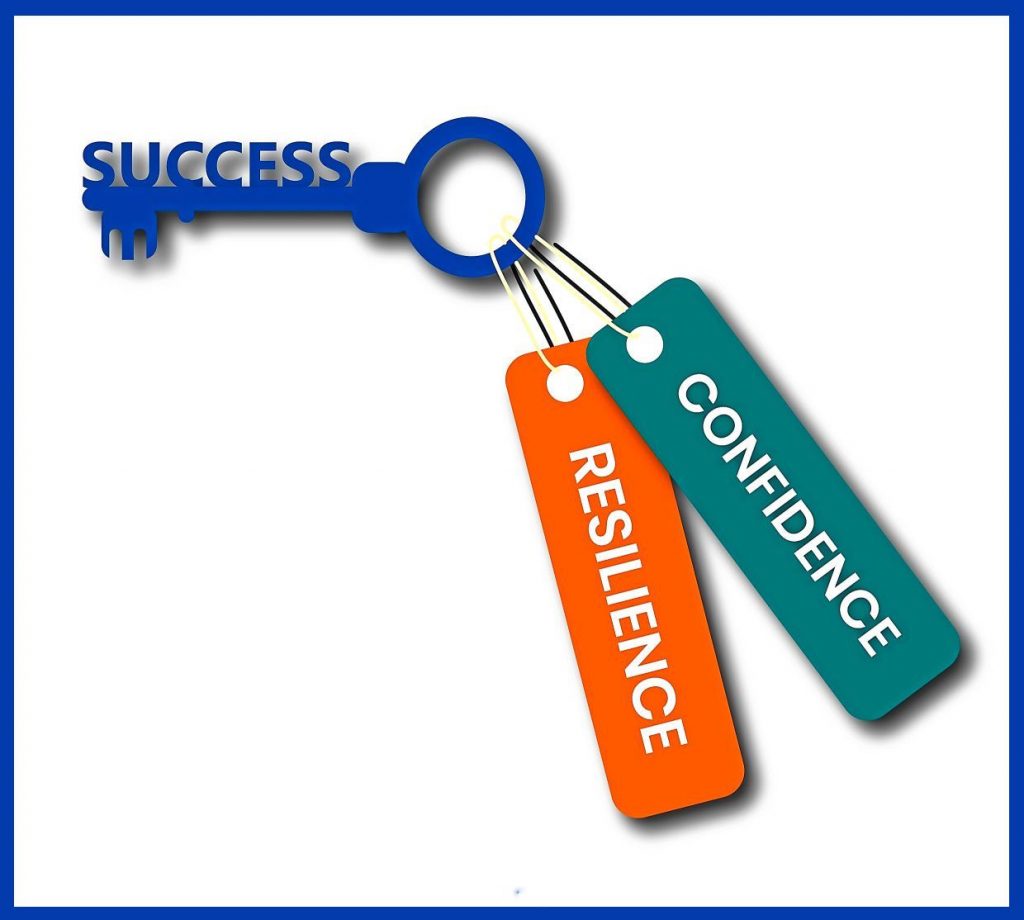Edition: February 2nd, 2022
Curated by the Knowledge Team of ICS Career GPS

- Excerpts from article by Shay Burns, published on MakeUseOf.com
Most people, at one time or another, have experienced low confidence at work. If this happens occasionally, it’s not a point of worry. However, constant low confidence has a negative impact on your decision-making abilities, and how you feel about your job.
So, whether you’re feeling this burden yourself, or managing someone who does, it’s good to know how you can turn this around.
The Importance of Confidence
Lots of things can cause low confidence at work, some of which are:
- Perfectionism
- Bad experiences
- Fear of failure
- Stress
The thing that unites all of these is the feeling of not being good enough, and it can have a devastating effect on your performance.
Research has shown that when someone is self-assured and optimistic about their work, they perform better than those who perceive failure, regardless of their skill level. Essentially, being confident is just as important as productivity and experience, if not more so.
Also, self-belief in your work is linked to higher levels of wellbeing and resilience, which further improves your chances of job-related success and satisfaction. So, it makes sense to work on your confidence level.
Here are some ways you can boost your confidence at work and reap the rewards:
1. Challenge Negativity Bias With Feedback Boards
- One aspect of low confidence is negativity bias. This is a psychological phenomenon that causes you to pay more attention to negative experiences and information than positive ones.
- It can also make you ruminate on that negativity, for a long time after the event.
- This can play out at work when you receive feedback from your boss or colleagues.
- An excellent way to combat negativity bias, is to challenge it head-on by creating a feedback board.
- In essence, this is a toolkit of praise and positive comments you receive, so that when your work is criticised, or you’re feeling unsure of yourself, you can look at it as a reminder of your competence.
2. Expand Your Knowledge
- When you start a new job, you probably know a lot less than your colleagues, and you naturally feel less confident.
- This is normal, but as you gain experience and understanding, your confidence grows.
- Having a good level of knowledge about your work means that you feel more equipped to make decisions and better able to execute tasks.
- Learning is an ongoing requirement of most jobs, and if you’re feeling unconfident, it might be time to upskill.
- You can find out what courses and learning opportunities your workplace has to offer.
- If they don’t have what you need, here are some great online learning platforms:
- LinkedIn Learning for courses created by professionals.
- Headway app for bite-sized book summaries on educational topics.
- YouTube for video-based tutorials.
- Future Learn for industry-specific courses.
- And plenty of self-study apps for learning new skills.
- When you have a better grounding in the areas that you’re most unsure about, you will be able to remove any second-guessing that comes with it.
3. Discover Your Career Goals
- With low confidence, it’s tempting to compare yourself to others, and to try and emulate their routes.
- However, there’s a reason why it’s so hard to keep up when taking this approach, and it’s because everyone has different starting points and motivations that got them here.
- An important step to improving your self-belief is to discover your goals and facilitate your own achievements.
- By setting and achieving your own work goals, you can take control of your current situation, and carve out your own unique path.
- Keeping a log of your goals will improve your focus and give you a confidence boost when you see your progress.
- To get started, ask yourself these questions:
- Is this the job where I want to be, right now?
- Are all my skills being utilised?
- What are my aspirations?
- What do I enjoy doing most?
4. Highlight Your Strengths
- As humans, we’re notoriously bad at recognising our strengths and acknowledging our potential.
- This is often magnified during job interviews, where you have to demonstrate your value above your competitors.
- However, just as knowing your worth is necessary for interview success, it’s needed in the workplace, too.
- Everyone has something they’re good at, and being aware of yours will boost your confidence.
- You can do this by creating a private skills’ portfolio, that only you can view, and keep adding to it regularly.
- Google Docs and Microsoft Word have some excellent templates to get you started with this.
- Alternatively, you can use your feedback board to draw out areas that you regularly excel in.
- Remind yourself of these strengths on a daily basis, and over time your self-belief will grow.
….
AI – The New Frontier in Careers
(Disclaimer: The opinions expressed in the article mentioned above are those of the author(s). They do not purport to reflect the opinions or views of ICS Career GPS or its staff.)




One Reply to “Career Trends: How to Boost Your Confidence at Work”